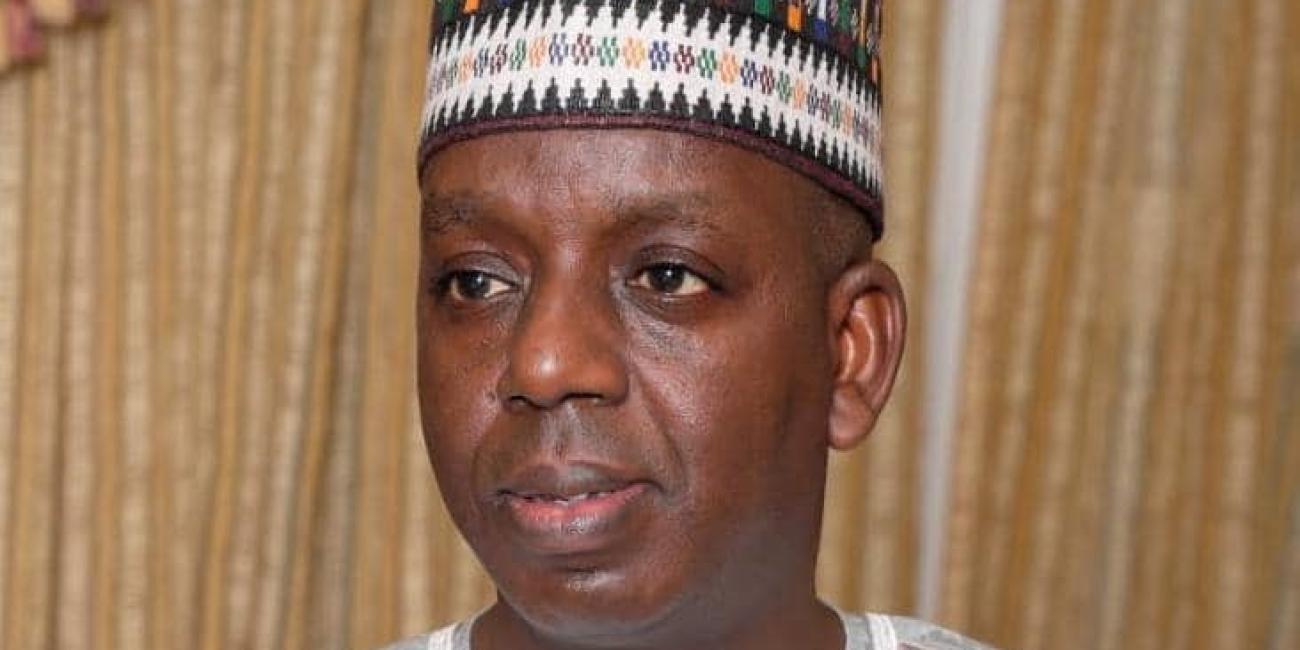...To get all news updates, Join our WhatsApp Group (Click Here)
Also Join our WhatsApp Channel (Click Here)
At least three more women have testified against the Permanent Secretary in the Ministry of Foreign Affairs, Ambassador Ibrahim Lamuwa on the same allegations of sexual harassment levelled against him by one Simisola Fajemirokun-Ajayi who is said to be an aide to the minister.
Simisola Fajemirokun-Ajayi had earlier written a petition to the minister which forced the latter to equally write to the Head of Civil Service of the Federation, Folasade Yemi-Esan, to probe the allegation.
This made the Head of Service set up a panel to investigate the allegations after suspending the Permanent Secretary, pending the probe’s outcome.
However, findings by PRNigeria revealed that at least three more women had approached the probe panel to lodge similar allegations of sexual harassment against the Permanent Secretary.
Meanwhile, the Joint Negotiating Council, JNC, the labour union in the Ministry, had also accused the permanent Secretary of high-handedness, maladministration, favouritism and financial improprieties, which, according to them, had significantly affected the welfare and rights of the workers.
In a petition addressed to the Minister, Ambassador Tuggar and dated 11th of June, 2024, the staff union accused the Permanent Secretary of relegating all issues that had to do with staff welfare, allowances, emoluments, training etc to the background.
They specifically highlighted the denial of various benefits the workers were entitled to, which had been a source of their discontent for months.
In the petition obtained by PRNigeria, the union listed and explained in detail the series of benefits that the workers were entitled to that Ambassador Lamuwa had been denying them for months.
They accused him of unduly and illegally favouring a certain category of people and victimising those who did not dance to his tunes, in the area of posting, training and other benefits like Hajj seats.
Some of his alleged crimes against the labour union as listed in the petition include delay in payment of some benefits, delay in promotion and conversion of staff, lack of transparency in posting exercise, delay in paying of clothing allowance, discrimination in paying First 28 Days Allowance, lack of fairness in the distribution of the 2024 Hajj seats, inadequate posting of Batch B officers to foreign missions, poor sanitation and hygiene due to insufficient water supply, lack of work tools, dilapidated office buildings, refusal to pay the 25th regular course allowance for nine months among others.
In the petition signed by JNC Chairman, Comrade Ali Seidu, and Assistant General Secretary, Comrade Akpana S.E, the union urged the Minister to look into their grievances and address the series of injustice allegedly done by the Permanent Secretary to avoid a drastic action by the workers.
“Consequent upon the maladministration, dwindling level of productivity occasioned by the administrative leadership apathy in the ministry, the JNC has been engaging with the management thinking its solidarity with the authorities of the Ministry will yield positive results and prompt action on pending issues.
“Unfortunately, there was no corresponding improvement instead, the management has become worse, unreceptive and very harsh to everyone who dares to speak and ask questions. Victimisation, intimidation, and harassment has become a tool the management uses to shut critics while the staff of the Ministry continue to suffer.
“The staff of the Ministry are outraged by the egregious neglect, surreptitious administrative skullduggery, manipulations and commercialisation of the Ministry’s activities by the Permanent Secretary and his allies under the guise of rejuvenation. They have introduced harmful practices that threaten the very fabric of our Institution. We demand an immediate end to all their destructive policies and a return to the principles of fairness, equity and transparency. We call on the Honourable Minister to direct the authorities to investigate these grievances and take swift action.
“We the staff hereby give a 21-days ultimatum to the Management to immediately address the grievances outlined in our communiqué, failure to do so will be met with strong resistance,” the petition read in part.
You can get every of our news as soon as they drop on WhatsApp ...To get all news updates, Join our WhatsApp Group (Click Here)
Also Join our WhatsApp Channel (Click Here)

















